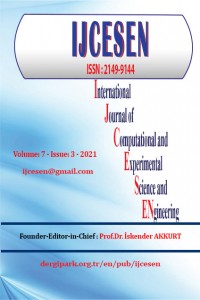Abstract
Abstract:
Background: Coronary heart disease (CHD) is a main cause of mortality due to cardiovascular diseases. Hypertriglyceridemia (HTG) is a multifactorial condition implicated in the pathogenesis of CHD. Serum triglyceride (TG) levels were routinely obtained under fasting conditions; however, recent evidences implicate that postprandial triglyceride levels may be more important for CHD risk.
Aim: Aim of this study was to investigate the effect of rosuvastatin on fasting and postprandial TG levels in the patients with borderline-high TG levels.
Methods: 51 patients (18-75 years old; 26 female) with LDL-c between 100 and 160 mg/dL and triglyceride levels between 150 and 300 mg/dL were included in this study. Basal fasting and postprandial lipid profile and hsCRP levels of the patients were obtained and patients were requested to take 10 mg/day rosuvastatin for one month. At the end of one month, the measurements were repeated.
Results: Rosuvastatin significantly decreased both fasting and postprandial TG levels compared to basal levels (p<0.001). The decrease in the postprandial TG levels after rosuvastatin treatment were significantly higher than the decrease in fasting TG levels (p<0.001). No differences between genders were observed with regards to decrease in the fasting and postprandial TG levels. In patients with metabolic syndrome, rosuvastatin treatment decreased fasting and postprandial TG levels after one month, however, the change was not different from the patients without metabolic syndrome.
Conclusion: In conclusion, the decrease in postprandial TG levels after rosuvastatin treatment that was shown may be clinically important in prevention of CHD in HTG patients.
References
- Referans1 Han SH, Nicholls SJ, Sakuma I, Zhao D, Koh KK. Hypertriglyceridemia and Cardiovascular Diseases: Revisited. Korean circulation journal. 2016;46(2):135-44. doi:10.4070/kcj.2016.46.2.135.
- Referans2 Egeland GM, Igland J, Sulo G, Nygard O, Ebbing M, Tell GS. Postprandial triglycerides predict incident acute myocardial infarction among those with favourable HDL-cholesterol: Cohort Norway. Eur J Prev Cardiol. 2015;22(7):872-81. doi:10.1177/2047487314535681 Referans3 Masuda D, Yamashita S. Postprandial Hyperlipidemia and Remnant Lipoproteins. Journal of atherosclerosis and thrombosis. 2017;24(2):95-109. doi:10.5551/jat.RV16003
Abstract
Supporting Institution
Destekleyen kurum yoktur.
References
- Referans1 Han SH, Nicholls SJ, Sakuma I, Zhao D, Koh KK. Hypertriglyceridemia and Cardiovascular Diseases: Revisited. Korean circulation journal. 2016;46(2):135-44. doi:10.4070/kcj.2016.46.2.135.
- Referans2 Egeland GM, Igland J, Sulo G, Nygard O, Ebbing M, Tell GS. Postprandial triglycerides predict incident acute myocardial infarction among those with favourable HDL-cholesterol: Cohort Norway. Eur J Prev Cardiol. 2015;22(7):872-81. doi:10.1177/2047487314535681 Referans3 Masuda D, Yamashita S. Postprandial Hyperlipidemia and Remnant Lipoproteins. Journal of atherosclerosis and thrombosis. 2017;24(2):95-109. doi:10.5551/jat.RV16003
Details
| Primary Language | English |
|---|---|
| Subjects | Clinical Sciences |
| Journal Section | Research Articles |
| Authors | |
| Publication Date | November 30, 2021 |
| Submission Date | November 17, 2020 |
| Acceptance Date | November 28, 2021 |
| Published in Issue | Year 2021 Volume: 7 Issue: 3 |


